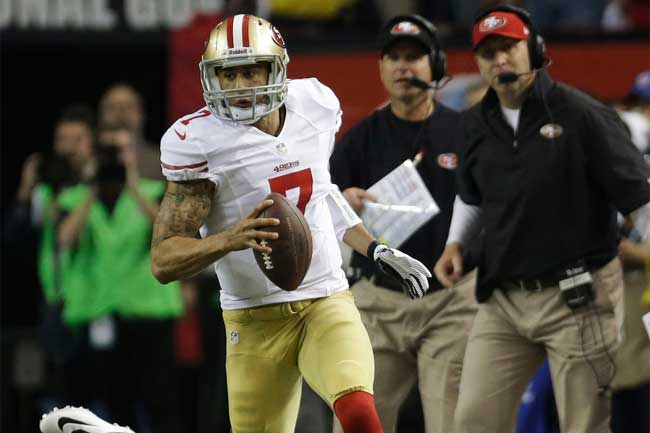Betting History (Heavily) Favors 49ers

Betting history has favored the NFC's Super Bowl representative as well as the bookmakers' favorite, something San Francisco will be hoping holds true on Feb. 3.
It’s not only the bookmakers that are leaning towards the San Francisco 49ers in the upcoming Super Bowl; betting history is showing a distinct favoritism also.
Super Bowl XLVII – which is to be played on Feb. 3 at the Mercedes-Benz Super Dome in New Orleans, La. – will pit the NFC champion San Francisco 49ers against the AFC champion Baltimore Ravens.
After the two sides were victorious in their respective conference championship games last Sunday, bookmakers installed the Niners as 5-point favorites. Few were surprised by that number; after all, the Ravens have been underdogs for the past two weeks while the Niners have been favorites. Even fewer would be surprised once reading the historical betting record.
NFC Superiority
San Francisco’s advantage starts with the conference it plays in.
The NFC* is 25-21 all-time in Super Bowl games. That advantage is a little less pronounced than back in the 1980s and 90s, when the NFC won 13-straight Super Bowls between 1985 and 1997, but it’s still an advantage.
Furthermore, the NFC has won the last three Super Bowls during a streak of four wins in five years. San Francisco will look to follow in the footsteps of the 2009 New Orleans Saint, 2010 Green Bay Packers, and 2011 New York Giants, and lift the Lombardi trophy on Feb. 3.
The NFC’s superiority straight up has also translated to the spread. In the 46 previous Super Bowls, the NFC boasts a 28-16-2 record against the spread.
The conference has fared well in recent seasons also, covering the spread in the last five Super Bowl games. That streak is part of a larger 9-2-0 ATS record that dates back to 2002, the last time the Super Bowl was played in New Orleans.
The NFC Super Bowl representative has generally fared well in the Big Easy also.
In the nine previous Super Bowls to be held in New Orleans, the NFC has won six of those. The Niners should be warned though; following the 2001 season, the New England Patriots handed the St. Louis Rams a 20-17 loss, snapping a three-game winning streak for NFC team’s playing at the Super Dome. The 1980 Oakland Raiders and the 1969 Kansas Chiefs are the only other AFC sides to win a Super Bowl in New Orleans.
The NFC’s advantage in New Orleans does not stretch to the spread, where it has gone 4-4-1 ATS in the nine games.
Favoring the Favorite
San Francisco enters the Super Bowl not only as the NFC representative but also as the favorite. As we shall see, that’s not exactly a bad position to be in either.
In the 46-year history of the Super Bowl, the team favored heading into the game has won 33 times. That’s 72 percent of the time.
The favorite has also composed a 26-18-2 record against the spread. In those nine Super Bowl games played in New Orleans, the favorite has gone 6-3 straight up and 5-3-1 against the spread.
Put all of this together and that spells good news for the Niners and bad news for the Ravens in two weekends’ time, right?
Well, not quite. There is a pair of statistics that may well stop bettors in their track.
In recent years, the favorite has won just two of five games. The 2007 and 2011 New England Patriots and the 2009 Indianapolis Colts lost Super Bowl games as favorites. The Giants (twice) and Saints proved worthy underdogs in those games. San Francisco will hope to buck that trend.
For bettors thinking about taking the Niners to cover the 5-point spread, they also might want to consider this. In the last five Super Bowl games, only one team (the 2010 Green Bay Packers) has entered as favorites and covered the spread. That’s four games where the underdog has covered, three of those in the wins documented above.
Furthermore, the favorite has only covered the spread three times in the last 11 Super Bowl games. Recent trends certainly favor the underdogs against the spread, something that might not play on the minds of the San Francisco teams, but it certainly should on those bettors dipping their toe in the waters.
So, it looks like history ultimately favors San Francisco, but a few niggling doubts certainly arise from recent form.
*For the purposes of this article, the NFC includes those teams playing for the NFL in Super Bowl I through IV, before the AFL-NFL merger in 1971. The AFC includes the teams playing for the AFL during that same period. The Baltimore Colts – who played in Super Bowl III as the NFL team – would become an AFC team following the merger.




